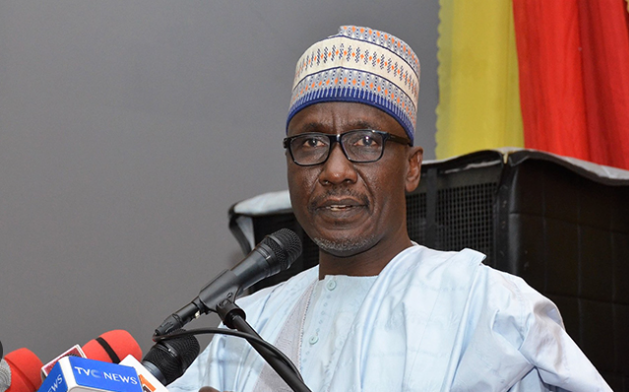By Joke Kujenya
NIGERIA’S STATE-run Nigerian National Petroleum Corporation (NNPC) has disclosed it is actively negotiating a new $2 billion oil-backed loan to stabilize operations and address financial challenges intensified by economic pressures.
The loan, proposed against 30,000-35,000 barrels per day of crude production, aims to bolster cash reserves and support ongoing business activities.
NNPC’s Group Chief Executive Officer, Mele Kyari, confirmed the corporation’s strategic move during discussions with Reuters.
Kyari emphasized the loan’s necessity in managing mounting debts, particularly the $6 billion owed to gasoline suppliers, which have doubled over the past four months.
He said the corporation, pivotal to Nigeria’s economy as the main stakeholder in oil exports and foreign exchange reserves, faces significant hurdles from pipeline theft and underinvestment, impacting production levels in recent years.
Rising fuel subsidy costs further strain NNPC’s financial liquidity, necessitating urgent financial measures, he admits.
He also said that President Bola Tinubu’s administration has been grappling with economic reforms aimed at eliminating fuel subsidies.
The President is also adjusting the naira currency closer to market rates without triggering severe public backlash due to increased living costs.
Despite challenges, Kyari assured that NNPC remains optimistic about securing the loan within the next two months through syndication with longstanding partners experienced in Nigerian business operations.
The corporation already holds a $3.3 billion oil-backed loan facilitated by Afreximbank but seeks additional liquidity to meet current financial obligations, he also states.
Concerns have been raised about the willingness of lenders, such as Afreximbank, to increase their financial commitments to Nigeria due to existing limitations.
This uncertainty complicates the NNPC’s efforts to finalize loan arrangements, the NNPC chief notes.
Additionally, delays in payment and financial pressures have led several oil trading companies to withdraw from NNPC tenders.
They cite growing financial risks linked to overdue payments as the primary reason for their decision.
Kyari said the soon-to-be-operational 650,000 barrels per day Dangote refinery near Lagos is anticipated to ease shortages of fuel within Nigeria.
However, its operations hinge on international crude oil prices and financing denominated in U.S. dollars.
Despite this potential relief, maintaining stability in Nigeria’s petroleum sector is complicated by domestic fuel prices, which are capped to control inflation but do not reflect actual market conditions accurately, Kyari stated.
He adds that as Nigeria navigates these economic challenges, NNPC’s strategic loan initiative underlines its commitment to sustainable growth amidst evolving market dynamics and regulatory reforms aimed at ensuring fiscal stability and economic elasticity.
At JKNewsMedia, our dedication to delivering reliable news and insightful information to our cherished readers remains unwavering. Every day, we strive to provide you with top-notch content that informs and enlightens. By donating to JKNewsMedia, you directly contribute to our mission of delivering quality journalism that empowers and informs. Your support fuels our commitment to bringing you the latest updates and in-depth analysis. Let's continue to uphold the highest standards of journalism and serve our community with integrity and dedication. Thank you for being a part of the JKNewsMedia family and for your ongoing support.






Why must local businesses, even if they are oil-related be denominated by foreign currencies? Why should locally refined Petroleum products be controlled by international market forces? Yet, we are grappling with inflationary forces that are being pressured by the prices of Petroleum products and the subsidies that are being removed for the umpteenth time. We seem to like complications… Yorùbá bọ́ wọ́n ní, ṣọ̀ọ́ làárìn, ajé níí mú’nií pẹkọrọ…
I think the reliance on foreign currencies and international market forces for petroleum products is due to the global nature of the oil industry and the volatility of the local currency, which complicates domestic economic stability and contributes to inflation. My humble view, though. Thank you for reading us on JKNewsMedia.com. We look forward to more of your reading and interactions. Blessings.